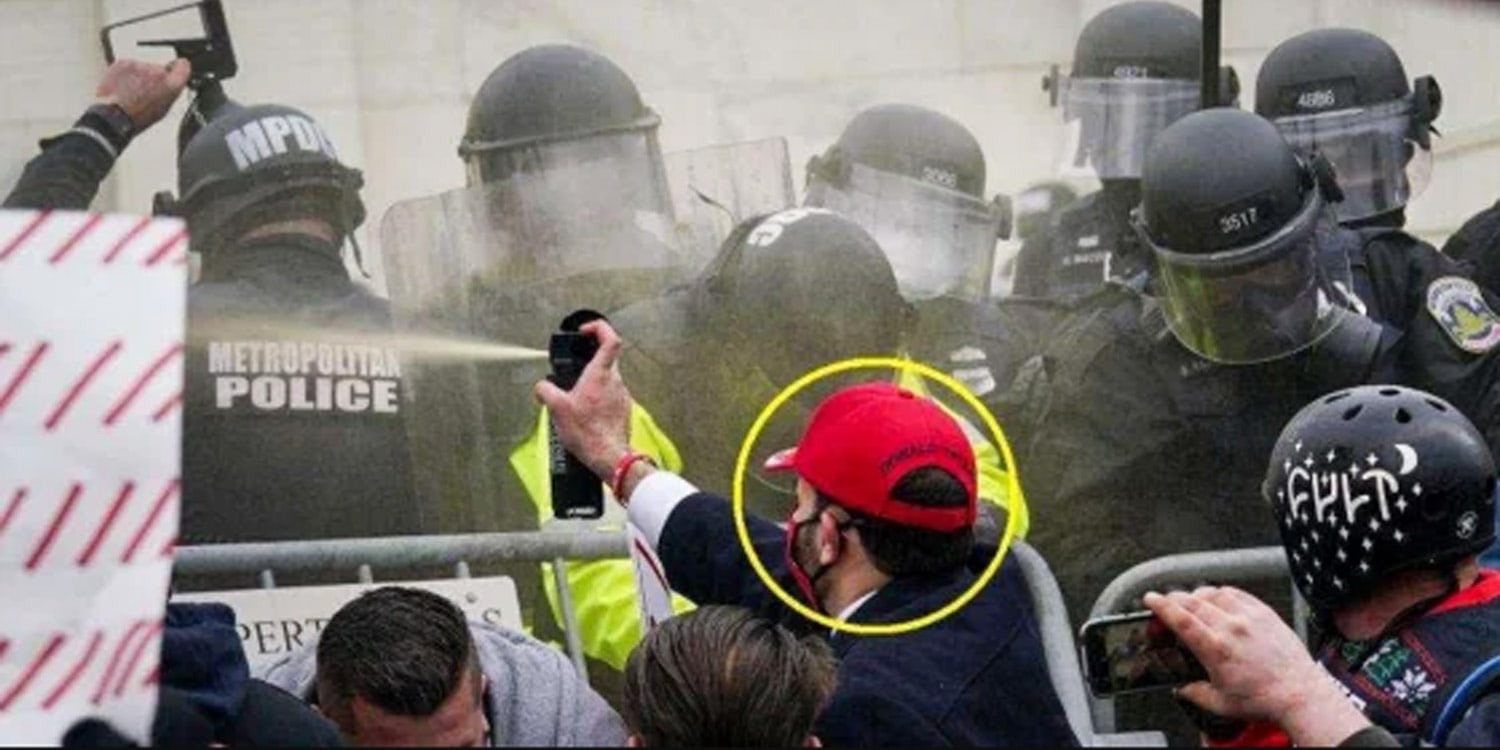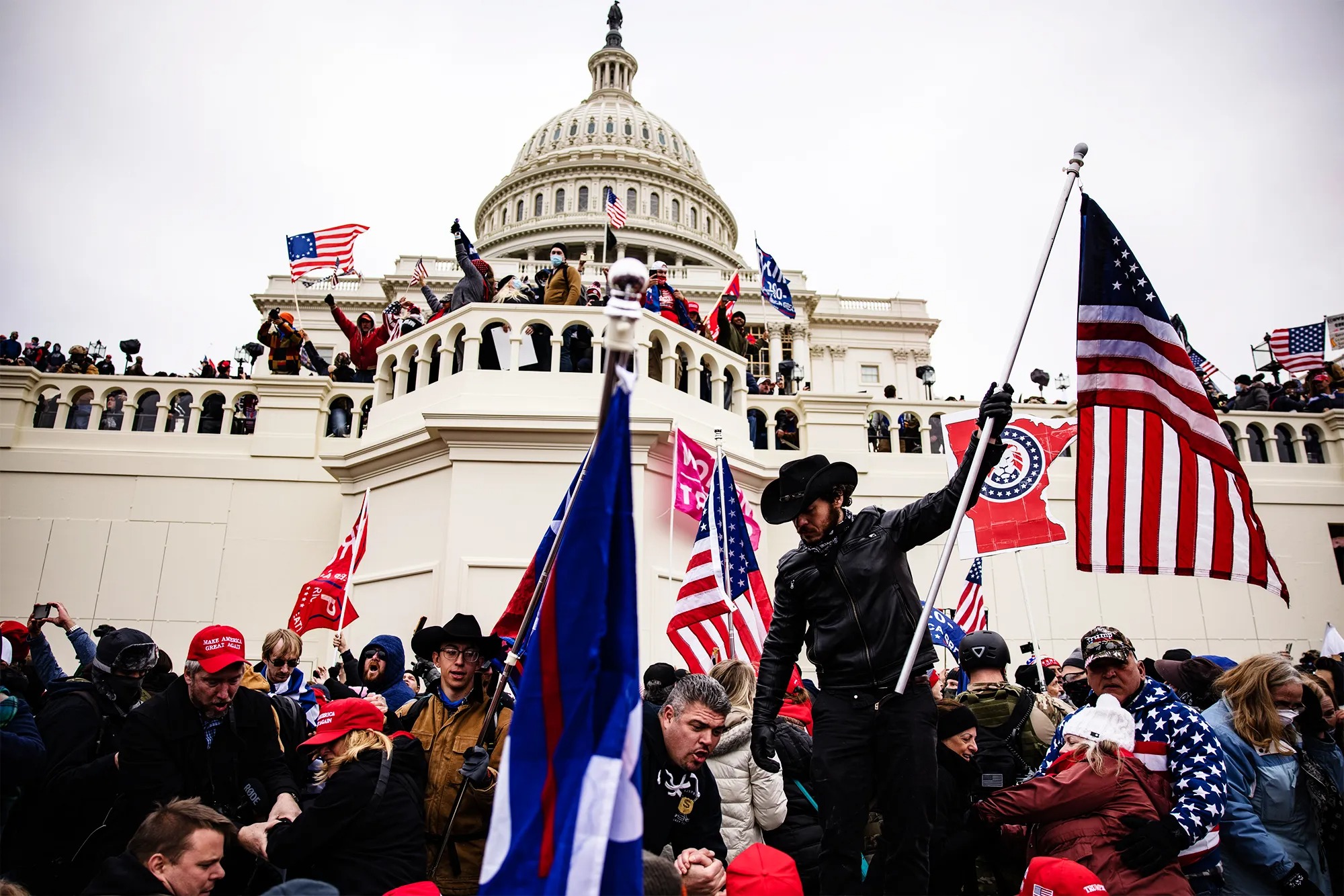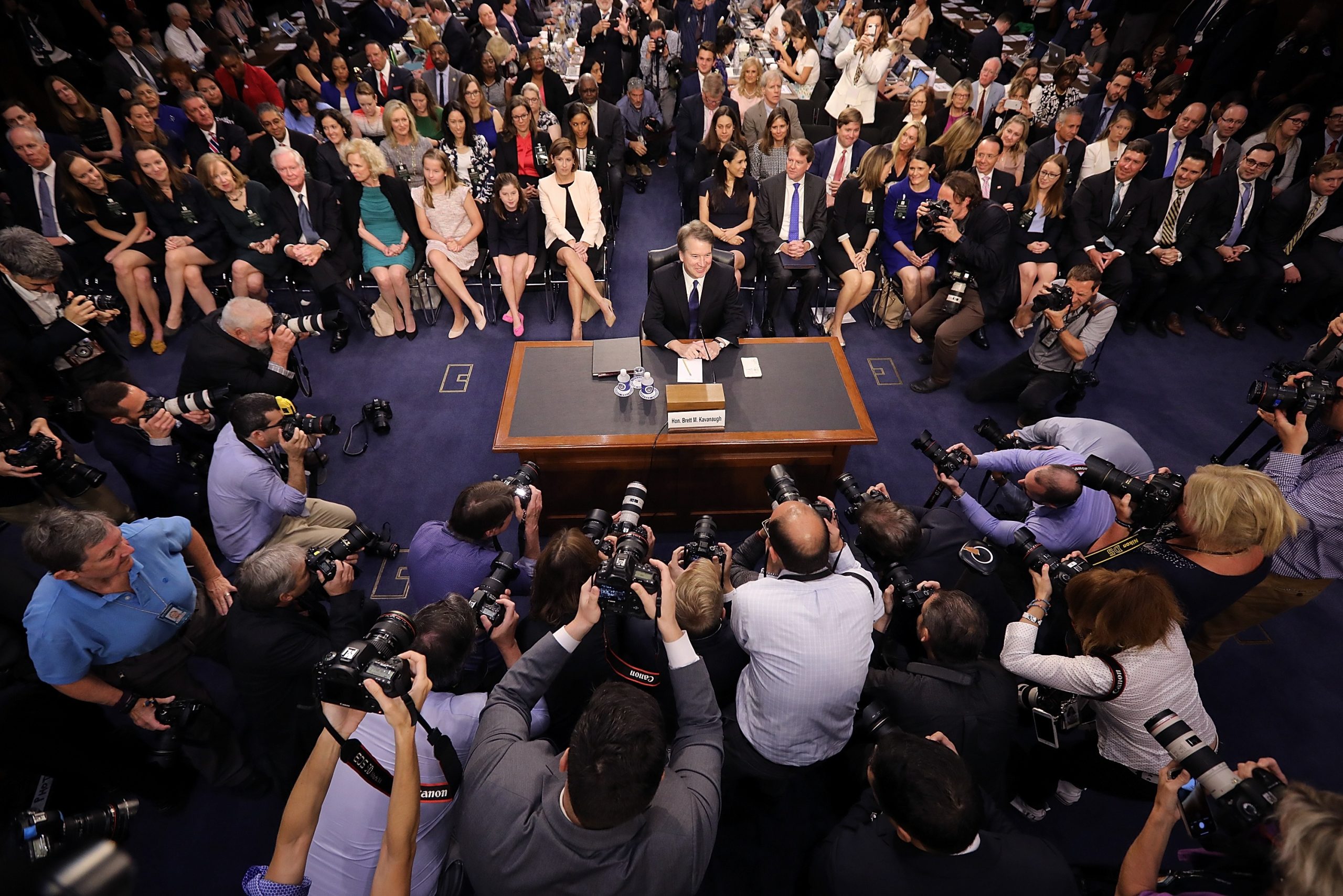The January 6 insurrection at the U.S. Capitol coincided with Gallup’s ongoing public opinion survey, offering a rare opportunity to scrutinize the impact of this significant political event on American sentiment, particularly regarding support for the Republican Party and Donald Trump.
Analysis of this data, recently published in the journal Electoral Studies, unveiled a surprising resilience within the Republican Party’s support base despite the gravity of the situation.
The study suggests that Republican voters are reluctant to withdraw support from politicians who flout democratic norms.
Sam van Noort, the study’s author and a lecturer in Public and International Affairs at Princeton University, illuminates the dynamics at play: “Contemporary democratic backsliding can often arguably be halted if voters are willing to vote an undemocratic politician out of office.”

Democrats (Credits: PsyPost)
However, recent experimental evidence in the United States suggests that American voters typically do not penalize undemocratic behavior by politicians.
Van Noort aimed to address the limitations of existing studies by leveraging a quasi-experiment created by the fortuitous timing of Trump’s incitement of the Capitol attack and Gallup’s survey.
Van Noort’s analysis of the survey data, which included 1,023 American respondents, revealed a modest decrease in support for the Republican Party and Trump immediately following the insurrection. Despite the event’s severity, approximately 78% of Republicans were loyal to the party.
Interestingly, this dip in support was transient. By February 2021, the Republican Party had largely rebounded to its pre-insurrection levels of support.
Similarly, Trump’s favorability experienced a brief decline but eventually recovered, indicating a remarkable resilience among his base.

Democrats (Credits: Vanity Fair)
These findings suggest that a significant segment of the electorate may prioritize partisan allegiance over democratic principles when confronted with conflicting interests.
Van Noort underscored the necessity for forthcoming research to explore the ramifications of various forms of democratic decline on voter actions, as well as the determinants of why individuals may retract their support from politicians involved in undemocratic practices.
The study underscores the complex interplay between partisanship and democratic values in shaping political attitudes and behaviors, raising critical questions about the resilience of democratic norms in the face of partisan polarization.
























